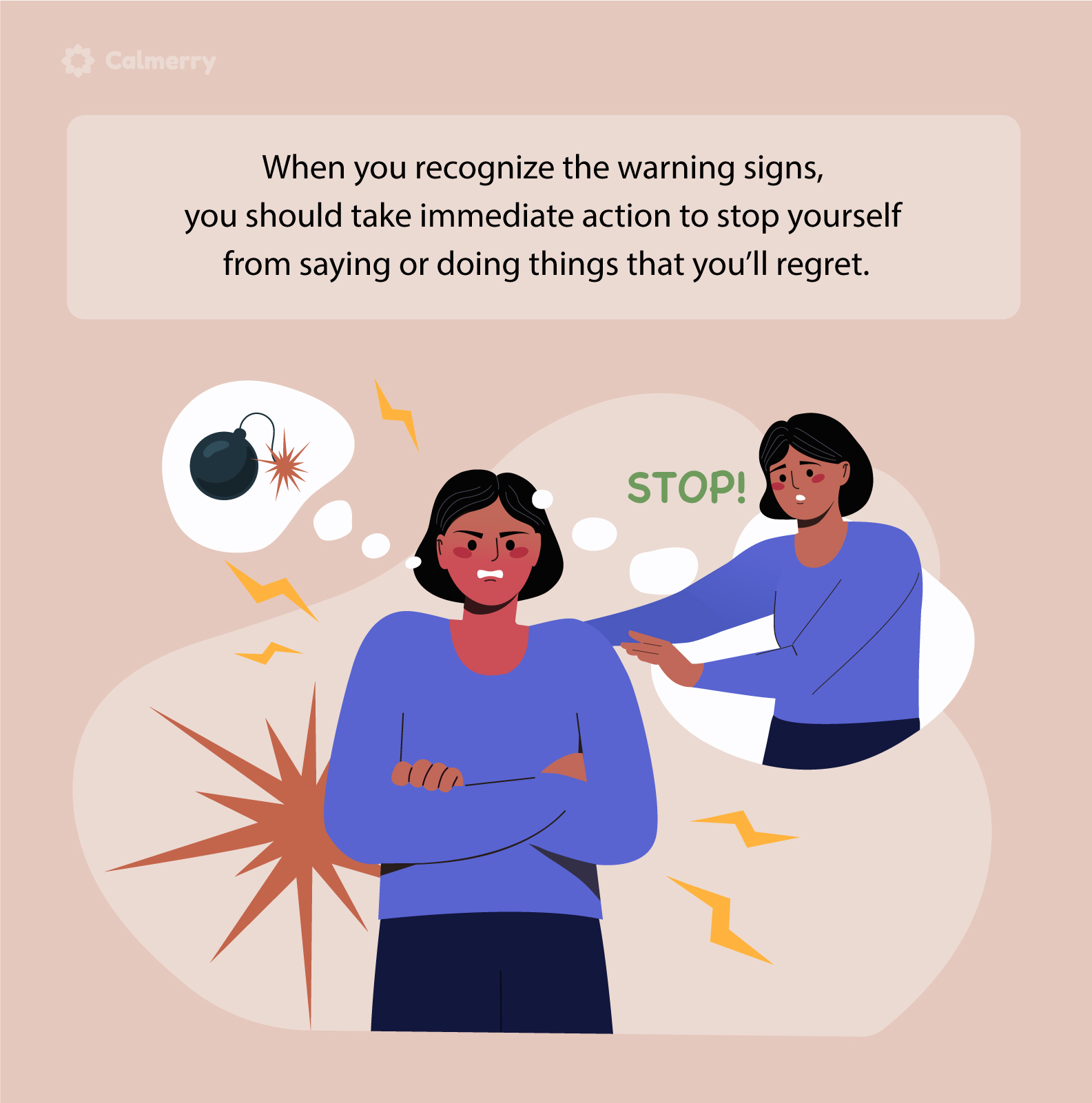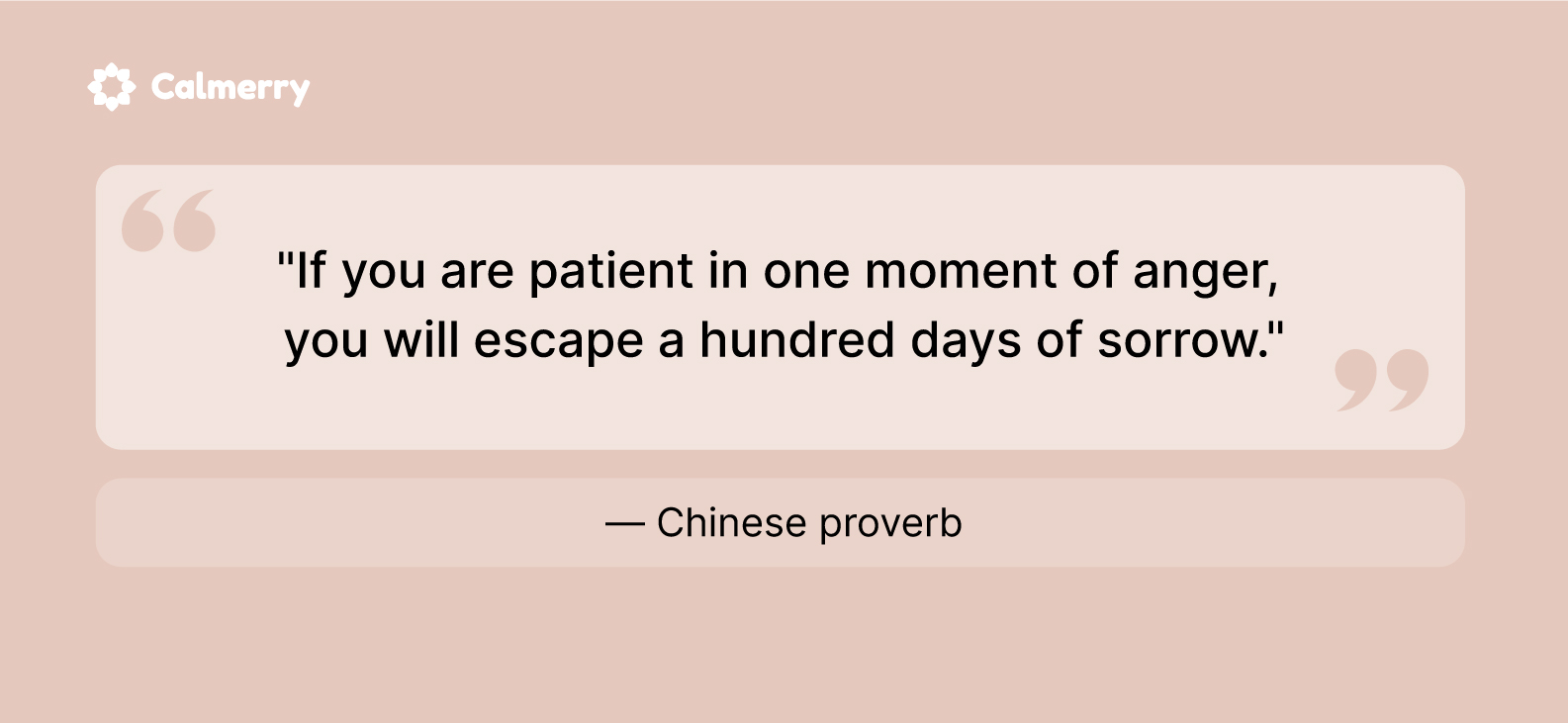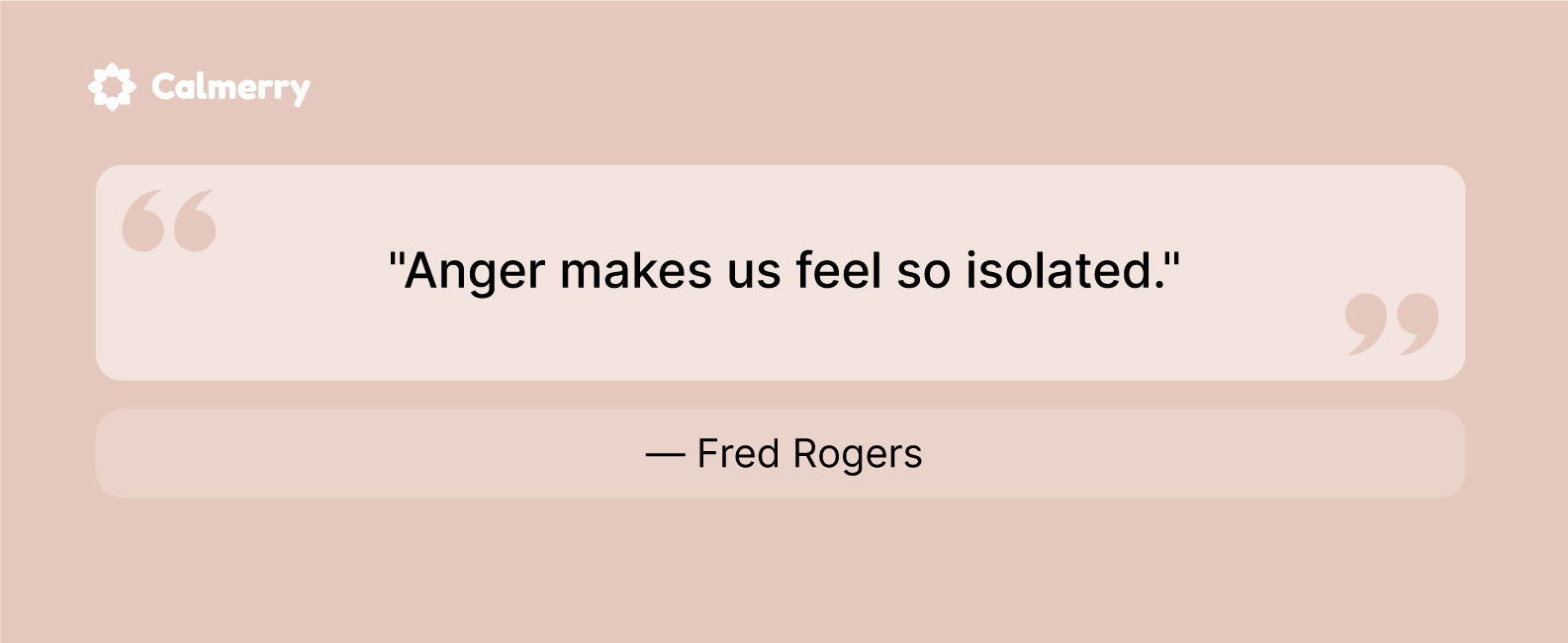How to Deal with Anger: 8+ Anger Management Tips That Work

In this article
Anger can be a positive emotion – especially when it motivates you to work through issues or create positive social change. However, it’s easy to get overwhelmed by it and get verbally or physically aggressive. Conversely, refusing to acknowledge, express anger, and deal with it healthily can affect your health and well-being.
When losing your temper and how you choose to cope leads to undesirable consequences, it’s time to do something about it. Remember that anger management is not about finding ways to suppress your anger.
Its goal is to understand the message behind this strong emotion and find healthy ways to deal with and express your anger without losing control.
Sometimes anger is expressed in an attempt to gain control, though often this is communicating the exact opposite to yourself and others. Although you can’t always avoid the things or people that annoy you, you can learn to control your reaction.
8+ effective anger management strategies that work
Coping with anger and knowing how to deal with your emotions is an acquired skill — most people can learn to control or work with, and not against, their feelings.
Here are some ways to do that.
1. Recognize the signs
Detecting the emotion early can help prevent negative outcomes. Anger can trigger the “fight-or-flight” reaction and cause a surge of adrenaline.
You might experience the following right before you get overwhelmed with anger:
- Rapid heartbeat
- Faster breathing
- Tense muscles
- Restlessness
- Clenched fists or jaw
- Sweating
- Trembling
When you recognize the warning signs, you should take immediate action to stop yourself from saying or doing things that you’ll regret. Take steps to manage your anger before it gets out of control.

2. Buy time to think
Sometimes, getting away from the person triggering your anger can help. It gives you time to work out your emotions, deal with them, and decide how you want to react.
Some ways to buy time to think are:
- Counting to 10 before you respond
- Going for a short walk
- Repeat a word or phrase that helps you calm down
- Talking to someone you trust who’s not involved in the situation. Voicing your thoughts can give you a new perspective.
- Observe and describe what you are thinking and feeling with a request for a “time out” to come back to the conversation later.
If you don’t feel comfortable talking to someone you know or you don’t have anyone you trust nearby, you can use confidential support organizations or consider therapy.
3. Use relaxation techniques
Depending on what’s convenient at the time you’re upset, there are a few effective relaxation techniques you can use.
Deep breathing techniques
One way to reduce your anger and deal with it is to breathe slowly and deeply. Breathe in through your nose and out through your mouth. Take deep breaths from your belly rather than your chest. Sometimes placing your hands on your belly as you breathe can help with focus and technique. You should feel your belly rise as you inhale and deflate like a balloon as you exhale.
Repeat this process as many times as you wish, feeling your body grow calmer.
Relax your muscles
Muscle tension is one of the signs of stress you might experience when you’re angry. To help you calm down, you might want to try progressive muscle relaxation techniques.
These techniques involve tightening and relaxing your muscle groups in sequence and being more aware of your body and physical sensations.
Focus on one part of your body at a time, following this sequence:
- Gently tighten the muscles but don’t strain.
- Notice the tension for a few moments.
- Become aware of the difference between the tensed muscles and the relaxed muscles.
- Release and notice the relaxation.
- Repeat.

Mindfulness techniques
A mindfulness practice for dealing with strong emotions such as anger takes only three minutes to complete and can have a positive effect on your mental state. It allows you to tap into the experience of anger and bring compassion into it.
Follow these steps:
- Sit comfortably and close your eyes. Feel the places where your body makes contact with the surface you’re seated on.
- Take deep breaths, filling your lungs with air and completely releasing each breath.
- Think about why you’re feeling angry. Allow the feeling to get as strong as possible.
- Notice which other emotions arise — you might feel sadness, shame, or fear. Try to focus on the feeling of anger.
- Explore the feeling — where in your body do you feel the anger? Is it increasing or decreasing in intensity?
- Embrace your anger. It is normal, and part of the human experience, to feel angry. Be compassionate toward yourself, despite the actions you took under the influence of strong emotions.
- Let go of the feeling.
4. Exercise
Go for a brisk walk, do jumping jacks, push-ups, or hit the gym to burn off the tension that comes with being angry. Regular exercise is a great way to manage strong emotions. It reduces stress and helps you improve your tolerance for frustration. It also helps you to clear your mind and deal with your feelings.
After a good exercise, you may have a better idea of what triggered your anger – an activity, time of day, people, place, or situation. With a clear mind, you can think of ways to avoid triggers or view the situations differently and commit to better anger management strategies.
5. Disrupting your thought patterns
Common negative thinking patterns (overgeneralizing, blaming, obsessing over “musts” and “shoulds”, mind reading, etc.) often fuel your anger. You might ruminate on upsetting situations – this worsens your frustrations and pushes you closer to an outburst. So when you identify the thought patterns that trigger your anger, you can learn to reframe how you think about things.

When you find yourself stuck in a loop of angry thoughts, get a distraction. Read a book, watch a movie, or perform a physical activity that will get your mind off your frustrations for a while. Practice visualization, thinking of a time when you were calm and content.
6. Evaluate your anger
Once you’ve calmed down, it helps to evaluate the situation and understand why you were angry. Are there any specific people or actions that trigger you? Was your anger justified? Is there any way to avoid your triggers? If not, how can you cope?
Evaluating the situation with a clear mind is helpful in choosing the best coping mechanisms. However, it is not easy to do, and you might need the help of a professional. Seeking anger management counseling is a great way to deal with extreme and chronic episodes.
Identifying the underlying thoughts and being curious about them can also help them shift to more balanced, realistic thoughts that then reduce the intensity of the emotion.
For example, ask yourself:
- What are the facts for and against the thought you are having?
- Are there important pieces of information you are not including in your thoughts?
- Is the thought based on emotion or facts?
7. Find creative ways to deal with anger
There are some unconventional ways to calm down and deal with anger when you feel your temper rising:
- Sing out your anger – use your voice or any musical instrument to express how you feel.
- Dance out your anger – find somewhere private to dance to your favorite song.
- Draw or paint your anger – bring out your art supplies and draw or paint whatever is on your mind.
- Use humor – making light of a situation can help ease feelings of frustration. Try to see the funny side of things that disappoint, annoy, or frustrate you.
Practice gratitude – think of all the things you are grateful for to distract yourself from your frustration. - Create a “calm down” kit – put together all the things that make you feel calm. This could be a collection of pictures, music, scents, or anything that appeals to your senses.
- Use a gestalt technique to verbalize your anger – prop some pillows on a seat, and pretend that they are the person you’re angry at. Talk, scream, or punch them to release your anger.
- Relationship counseling can provide a structured and supportive environment to work through the root causes of your anger and how it impacts your relationship.
These creative techniques can help you release most of your frustration. Once you’re less emotional, approach the person you’re angry with and have a calm conversation about how their actions made you feel.

8. Anger management therapy
If anger has been having a negative impact on your life, you might want to seek counseling. Anger management issues are often linked to mental health problems — there might be more to your outbursts than you know.
Uncovering mental health issues that hinder your ability to manage anger is possible with guidance from a therapist. You may start by consulting your physician, and they may refer you to a mental health professional for evaluation and diagnosis. Online therapy is a good option too.
Learn anger management techniques with a therapist
Everyone gets angry sometimes. It is a normal and helpful emotion – it’s neither good nor bad. It can bring about social change and personal improvement. However, it can also lead to outbursts and aggression.
Anger can become a problem if you express it in a harmful way for yourself or others. Knowing how to control anger outbursts and deal with your emotions can significantly improve your relationship with yourself and others.
Professional guidance from a therapist on Calmerry can provide the tools and support needed to effectively manage and channel your anger, ultimately enhancing your emotional well-being and relationships.
online therapy
live video session



